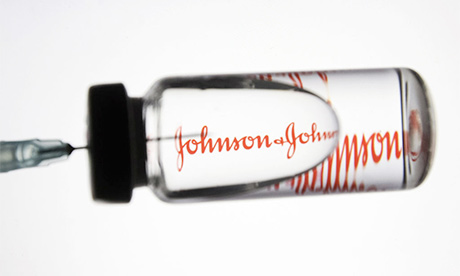Why are some US bishops of the Catholic Church telling Catholics to avoid the newly approved Johnson & Johnson Covid-19 vaccine?
Why did some U.S. Catholic leaders rush to issue warnings about this vaccine even though the Vatican has already said that it can be morally acceptable to receive it?
Most importantly, why did these statements not start, as would be entirely compatible with Catholic moral teaching and the Vatican guidance, with a summary that said:
“All of these vaccines are safe, effective and morally acceptable under present circumstances, even if not perfect. Solidarity, especially with those at increased risk from Covid-19, calls us to cooperate in getting as many people vaccinated as soon as we can”?
Caveats, of course, must follow immediately: The actual statements were more nuanced than the headlines; the statements in question were issued by individual dioceses and chairs of committees at the U.S. Conference of Catholic Bishops, and other bishops and dioceses have not universally adopted this approach; and the statements, properly understood, only counsel avoidance of the Johnson & Johnson vaccine relative to other options.
Nonetheless, the headlines these statements drew make the risk and cost of such statements clear:
- “Covid-19 Vaccines Draw Warnings From Some Catholic Bishops”;
- “Catholic Archdiocese Bans COVID Vaccine Over Tenuous Link to Abortion”;
- “U.S. Conference of Catholic Bishops says to avoid Johnson & Johnson vaccine if possible.”
Compare the impression those headlines give with the Vatican guidance on this issue: “When ethically irreproachable Covid-19 vaccines are not available…it is morally acceptable to receive Covid-19 vaccines that have used cell lines from aborted fetuses in their research and production process” (emphasis in original).
Recent statements from some U.S. bishops, properly understood, only counsel avoidance of the Johnson & Johnson vaccine relative to other options.
If you have been following these issues closely and are carefully focused on the caveats, then you already know how to explain the nuance that is missing from most of the headlines. (The corollary, of course, is that if—like most Catholics—you are not thoroughly well-versed on the technicalities of these issues, you are more likely to just be confused.)
There is a moral difference between the Pfizer and Moderna vaccines, which only used cell lines derived decades ago from abortions for tests during their development process, and the new Johnson & Johnson vaccine, which uses such cell lines as part of its production.
That difference means that the new vaccine is less remotely connected to the evil of abortion than other currently approved vaccines—though, as the Vatican guidance makes clear, still morally acceptable when “ethically irreproachable” vaccines are not available.
There is no fundamental disagreement between the Vatican’s guidance and the recent statements within the U.S. church on the underlying moral teaching, and certainly no formal theological error in any of them.
Instead, the confusion around this recent vaccine guidance arises from differing priorities given to the various parts of the moral calculus outlined in the Vatican’s guidance, combined with what seems to be a pastorally irresponsible failure to plan for the predictable ways a Catholic recommendation to “avoid the Johnson & Johnson vaccine” would be covered and communicated in the secular press. Continue reading
